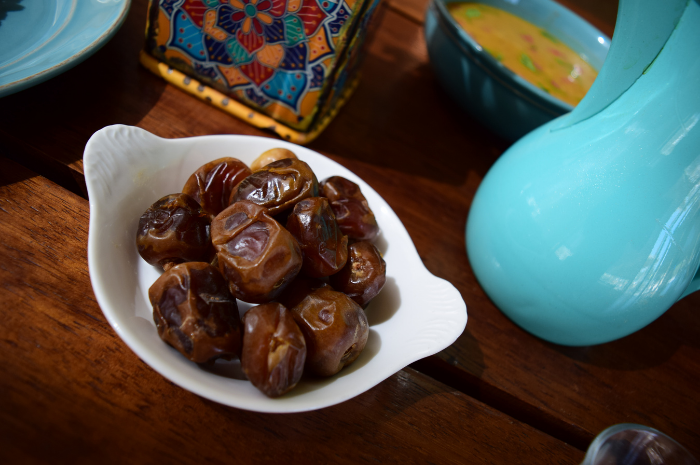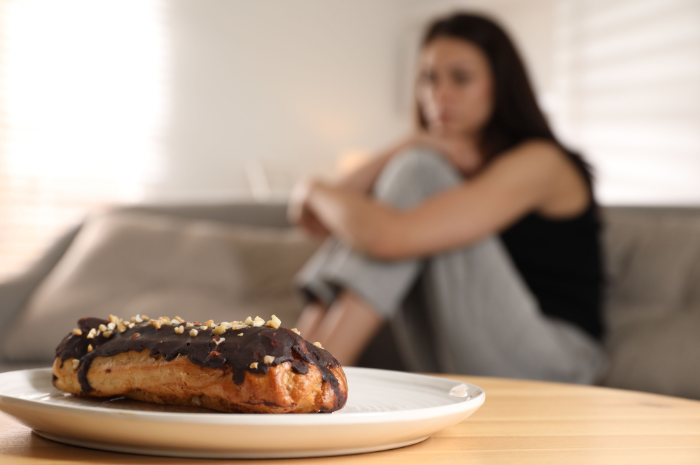Download your FREE ebook!
Plant-Based Ramadan – Pros & Cons

Despite never calling myself a vegan, many of my lovely readers and youtube subscribers think that i am…can’t blame them as even close friends and family think I’ve gone completely vegan. Although I eat plant-based most of the time…I’m what is called a “flexitarian”.
What does flexitarian exactly mean?
The definition is: a person who has a vegetarian diet but occasionally eats meat or fish. Others might call it vegetarianism with some cheating. I appreciate every vegan in this world and the positive impact they have on the environment and animal welfare. However in terms of health, it is my humble opinion that you can get the benefits of eating plant-based while still “cheating” from time to time.
Although I am a flextiarian and prefer the flexibility of this way of eating, I like going strictly vegan from time to time…and what better time than Ramadan! I’ve done it several times in the past, and with the holy month around the corner, I thought I would share with me the pros and cons of following a vegan diet during Ramadan.
Let’s start with the negative and get them out of the way…with some tips to combat them:
Inconvenience
You will either have to make an extra effort to make sure you have the meals you need, or “inconvenience” a family member to prepare it for you. Yes it will take more effort as you will have to plan ahead. However it won’t be more than any other “diet”…and there’s no restriction in terms of calories or amount so it’s more enjoyable and healthy. Think of it as a chance to explore and try out new recipes…and an opportunity to learn and improve your kitchen skills. And now more and more restaurants are offering plant-based meals, so it will be easier to order in or eat out. How about you try one of many vegan options available at Crumbs?
FOMO on Ramdan Desserts
Desserts in Ramadan…what I joy! Believe me I understand…and years ago i wouldn’t have dreamed of going vegan in Ramadan for the fear of missing out (FOMO) on “atayef bil eshta” or “konafa bil jibneh”. But now I know how to make delicious desserts that will more than satisfy my sweet tooth without feeling heavy afterwards. Don’t believe me? Try making my Vegan Besboosa and you will change your mind after one bite. If you live in Kuwait you can order it from Table11…problem solved!

More Hungry
If this is your first time following a vegan eating plan, not knowing what to make or not including enough protein and fat in your meals, could mean you won’t eat enough and therefore be more hungry while fasting. My best tip is to make sure you eat lots of veggies (did you know there’s protein in vegetables?) but also include good sources of healthy fats from nuts, seeds and avocado while making sure there is a source of plant-based protein in each meal. Examples would be a bowl of hearty lentil soup with quinoa for extra protein when you break your fast, a sprinkle of pine nuts on your salad, a slice of avocado with a big dollop of hummus on your toast as a snack…and chia pudding for suhoor.

And now for the fun part…
Easier than you think
This depends on where you are in the world and the hours of daylight during Ramadan, but in general there are a lower number of meals to think about and plan. If you are having iftar with extended family like I do, then most likely there will be more than one option for you, especially when it come to salads and soup….and most people get full after just that. So all you need to plan for is your snack and suhoor.

Loosing weight
I don’t like to emphasize weight loss and it really depends on what weight you are at when you start and how well you eat during the month. Nevertheless, by following a plant-based eating plan during Ramadan, you will naturally avoid many of the unhealthy foods going around the table or at many of the gatherings you might be attending. Foods such as cream, cheese, and many meat based dishes are relatively high in calories. By saying no to these foods and treats you are automatically cutting out a few hundred calories daily without even thinking about it.
More likely to exercise
Many people plan to exercise after iftar but are so full they can barely get up for taraweeh prayers. You will most likely feel lighter and have a healthier body and mind connection, which can spur you to exercise once you are done with your prayers. And even better you won’t feel so full during taraweeh. As for those of you that prefer to exercise before iftar, I find eating plant-based gives you more energy throughout the day, and you are less likely to feel thirsty.
More hydrating
We all aim to drink the recommended amount of water once we break our fast, but in reality it can be quite challenging. If you drink too much water, you can barely eat anything. A plant-based diet on the other hand is generally more hydrating – just think about the water in a cucumber for example! So you can technically “eat your water”. And what does a more hydrating diet mean after 30 days? Better skin that’s what!
I can go on and on with the pros of going plant-based during Ramadan, but let me end with this…
Many studies have shown the health benefits of fasting, and many more studies have proven the tremendous health benefits of eating more plants. So imagine how amazing you would feel when you combine both for a whole month.
Have you ever tried going vegan during Ramadan? If yes how did you find it? And if no, are you up for the challenge? Let me know in the comments below.




Leave A Comment